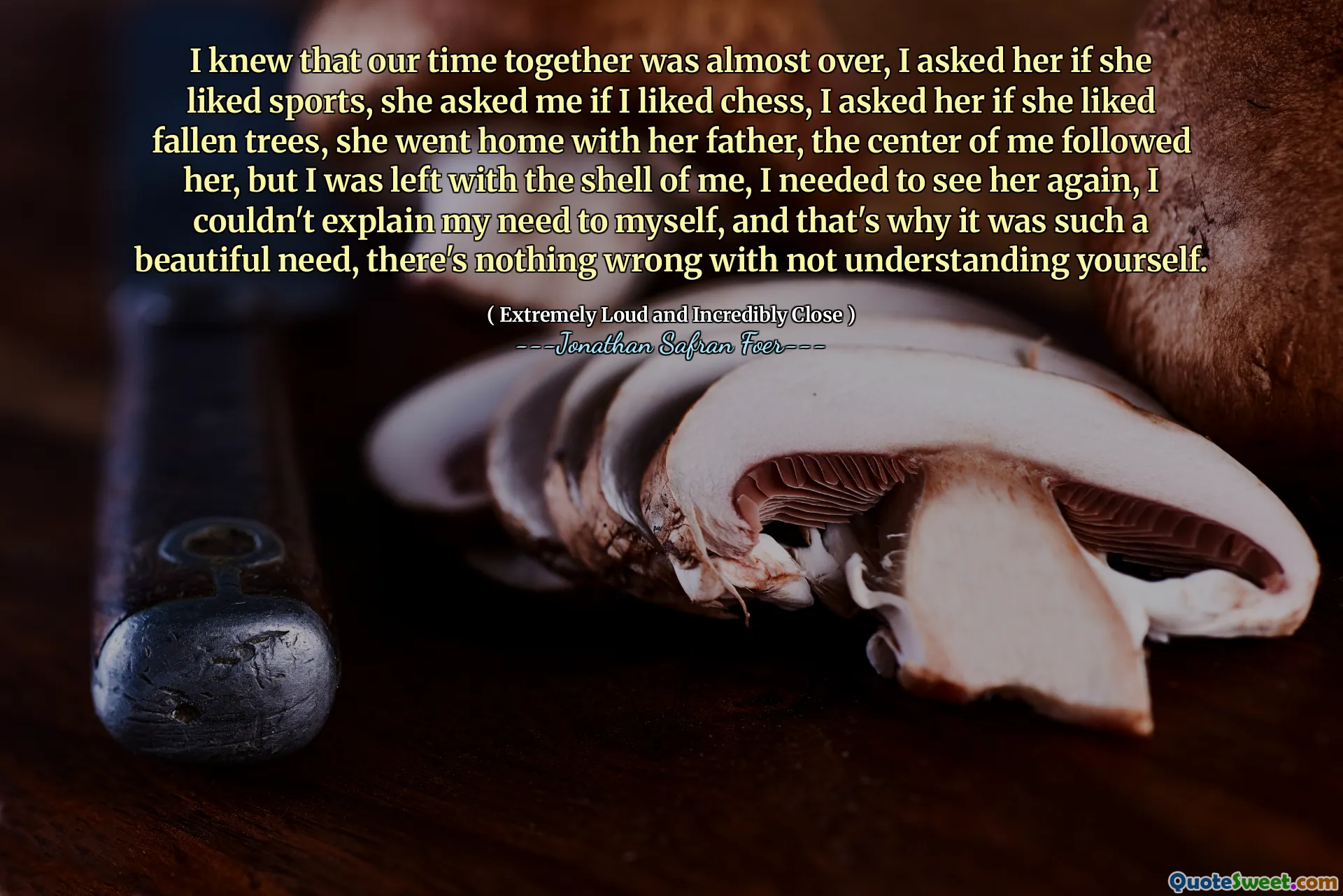
I knew that our time together was almost over, I asked her if she liked sports, she asked me if I liked chess, I asked her if she liked fallen trees, she went home with her father, the center of me followed her, but I was left with the shell of me, I needed to see her again, I couldn't explain my need to myself, and that's why it was such a beautiful need, there's nothing wrong with not understanding yourself.
[This quote beautifully captures the ephemeral nature of human connection and the intrinsic, sometimes inexplicable, longing for closeness. The narrative weaves a subtle dance of curiosity, mutual acknowledgment, and vulnerability—each interaction layered with small joys and poignant unspoken questions. The protagonist's pursuit of understanding another person’s preferences—from sports to seemingly trivial details like fallen trees—symbolizes our innate desire to connect through shared interests and genuine curiosity. Yet, despite these attempts to reach out, there remains an inevitable parting, which leaves him feeling only with a shell of himself, hinting at the loss of the emotional shell that formed during their interaction. The altitude of his longing is palpable, emphasizing that the need to see someone again is more about the internal craving for connection than about practicality or tangible reasons. Interestingly, the acknowledgment that not understanding oneself is 'nothing wrong' underscores a crucial element of human experience: self-complexity and internal mystery are natural states. It invites reflection on how sometimes, the beauty of our feelings and unspoken needs lies precisely in their ambiguity—how they enrich our emotional landscape even when they lack a clear explanation. This quote resonates deeply with the universal truth that human relationships, no matter how fleeting or simple, hold a profound power that shapes us in silent, lasting ways. It celebrates the imperfect, mysterious, and beautiful nature of emotional connection and personal longing—a reminder that understanding ourselves fully is less important than embracing the feelings that make us human.





